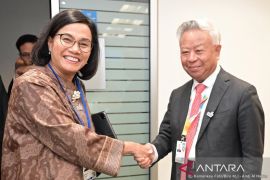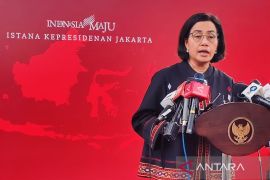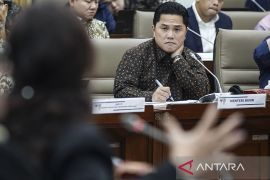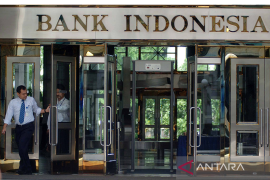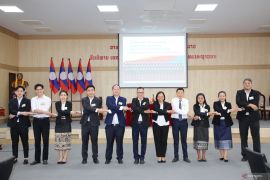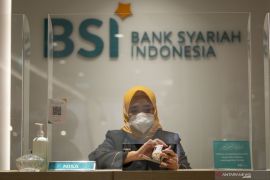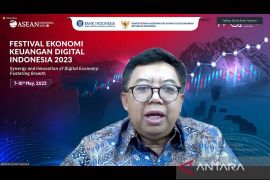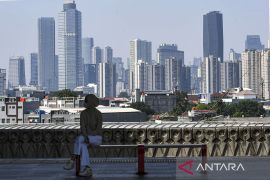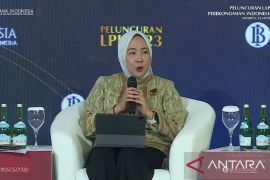... should be aware of the declining global oil price and The Fed policy. There is now a twin shock...Jakarta (ANTARA News) - Bank Indonesia (BI) Governor Agus Martowardojo said that Indonesia should be aware of two global challenges that could have impacts on national economy.
"Indonesia should be aware of the declining global oil price and The Fed policy. There is now a twin shock," the central bank governor said at the House of Representatives (DPR) building here on Wednesday.
He said that the global oil price drastically dropped from 113 US dollars per barrel to below 50 US dollars per barrel.
At the same time, the United States economy is improving and its central bank (The Fed) is taking a normalization policy. The interest rates are increased and currency exchange value becomes strong.
The BI governor said that the conditions indirectly weakened world commodity prices and lowered global economic growth predictions.
The International Monetary Fund (IMF) predicted the global economic growth would only be recorded at 3.5 percent in 2015.
In the face of the external pressures, the BI and the government will continue to cooperate in taking anticipatory steps to face possible problems that would disturb the overall domestic economic fundamentals.
"We welcome the cooperation between the BI and the government in taking taking synergy polices so that we are now convinced that the inflation rate at the end of 2015 will stand at four percent plus minus one percent. The current transaction deficit will be at the healthier range between 3.3 percent and -3.5 percent of the Gross Domestic Products," Agus said.
On the question why the BI has not yet lowered its benchmark rate, Agus said that the central bank still upholds the current rate to maintain the macro economic stability and the financial system in the face of economic uncertainties in 2015.
The government said earlier it was planning to accelerate economic growth to reach eight percent by 2019 and control inflation at 3.5 percent.
The government has put the goal in its official 2015-2019 Midterm National Development Plan (RPJMN) recently signed by President Joko Widodo.
"The Gross Domestic Product is expected to grow from 5.8 in 2015 to 7.1 percent in 2017 and 8.0 percent in 2019," the cabinet secretariat stated on its website on Thursday quoting the attachment of the Presidential Regulation Number 2, 2015 on the 2015-2019 RPJMN signed by President Joko Widodo on January 8.
Based on the plan, the investment need in 2015 reaches Rp3,945 trillion and it will increase by Rp5,188 trillion in 2017 and by Rp6,947 in 2019.
The government meanwhile expects inflation to reach 5.8 percent in 2015 and to later drop to 4.0 percent in 2017 and 3.5 percent in 2019.
Finance minister Bambang Brodjonegoro at the National Development Plan 2014 Meeting on December 18 expressed optimism that the country's economy could grow by 7 percent in 2017 by accelerating the improvement of its economic fundamentals.
The improvement would strengthen national economic resilience to meet global as well as domestic pressures in the next few years, he said.
He said "we must continue to improve the economic fundamentals, reduce problematic credit ratio, fiscal deficit and current account and through the efforts it is possible to make the economy to grow 6 percent in 2016 and 7 percent in 2017."
According to the President Regulation on RPJMN, national development programs will be prioritized for achieving sovereignty in food, energy supply as well as maritime as well as fisher resource management for the next five years.
The government is also committed to leading the development efforts to increase sustainable welfare by reviving the peoples spirit of solidarity and living harmoniously between social groups in the country.
The government wishes the economic posture will be matched with quality economic growth meaning the economy must grow inclusively and have wide bases and is based on superior human resource, science and technology.
Editor: Ade P Marboen
Copyright © ANTARA 2015
